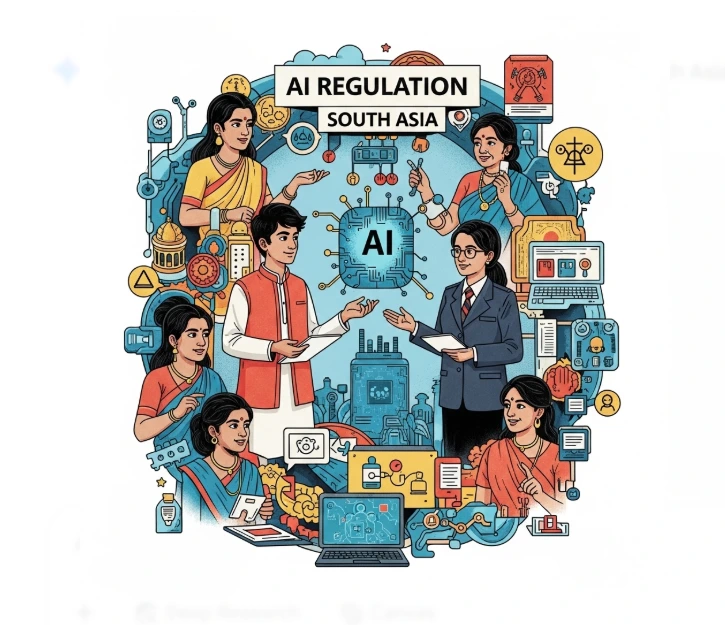AI legislation refers to any rule, law, or legal order enacted by the legitimate authority of a jurisdiction to govern, oversee, and regulate the attributes, evolution, and societal engagement of a digitally created artificial creature. This study offers a comparative examination of the regulatory framework for artificial intelligence in South Asian countries, juxtaposed with selected countries and worldwide organizations, considering the obstacles faced in regulating AI within the area. Moreover, the study illustrates that South Asian countries have encountered a notable and enduring legal inequality relative to other worldwide areas, characterized by both involuntariness and injustice. The article advocates for the governance of artificial intelligence and proposes strategies for South Asian governments to successfully govern AI, notwithstanding problems associated with its design and economic constraints.
Publisher: Legal Issues in the Digital Age, HSE University, Moscow, Russia.
Author: MAHMUD HASAN | Department of Criminology, University of Dhaka, Dhaka-1000, Bangladesh.
Citation: Hasan M. (2024). Regulating Artificial Intelligence: A Study in the Comparison between South Asia and Other Countries. Legal Issues in the Digital Age, 5(1), 122-149. https://doi.org/10.17323/2713-2749.2024.1.122.149
